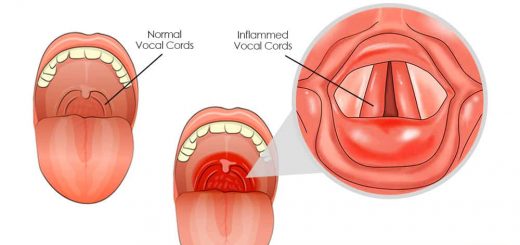Nymphomania – Genuine Condition or Just an Excuse for Promiscuous Behaviour?
Nymphomania is a term used to describe a perceived mental disorder specific to women, including compulsive sexual behaviour, hyper-sexuality, and sex addiction in women. The specific term for men for the same condition is satyriasis (exaggerated sexual desire in a man, where the symptoms are a compulsion to have sex with as many women as possible and an inability to have lasting relationships with them).
Using the term “nympho” has a negative connotation historically linked to attempts to control female sexual desire and the role of women in society. In modern times, people still sometimes use this term to describe women’s more or less uncontrolled impulses toward sex. In this article, while focusing on the causes and treatment of nymphomania, it’s important to remember that the same also applies to satyriasis.
Compulsion to Sex
This disorder is characterized by compulsive sexual behaviour. Compulsions are unwanted actions or rituals, in which a person participates on several occasions without getting pleasure from them or being able to control them. In the case of nymphomania, compulsions refer to participation in risky behaviours such as promiscuity. Whether or not nymphomania can be classified as true mental illness is often debated in the medical community, but there is enough evidence to suggest that compulsive sexual behaviour is a real thing.
Origin and Causes of Nymphomania
Nymphomania can appear at any age, although it is thought to begin during early adulthood. In addition to compulsive sexual behaviour, nymphomania can include negative thoughts, obsessive behaviour and feelings of guilt, shame or inadequacy. However, it is important to consider that nymphomaniacs generally do not derive sexual pleasure from their behaviour. Rather, they are powerless to control themselves.
The underlying cause of nymphomania is not known. Nymphomania is a mental condition, and, as with in other personality ‘dysfunctions’, recognizing the root causes can be very complicated. For this reason, nymphomania can arise from environmental events as easily as it can be related to a chemical imbalance in the brain. Contrary to popular belief, there is no concrete evidence to show that nymphomania is hereditary.
Fundamentals of Compulsive Sexual Behaviour
When talking about compulsive sexual behaviour, as opposed to a high libido, it is important to remember that the compulsion to have sex will interfere in your normal capacity to maintain relationships, focus on other things like work, and may affect your mental balance. Think of it as a drug addict looking for their next fix – nothing else matters.
In this case, a nymphomaniac will always seek casual sex encounters, even if they interfere with the rest of her life. In some cases they may even develop behaviours, actions or thoughts that violate social norms or laws. In general, a man or woman with compulsive sexual behaviour will pursue their sexual goals above all else, regardless of the serious or potentially serious negative consequences that may affect their lives. However, I feel that it is important to point out that men and women who engage in consensual group sex or other non-conventional practices are not necessarily showing compulsive sexual behaviour.
Causes of Nymphomania
Research suggests that both men and women tend to develop a compulsive sexual behaviour as a strategy to cope with stress or serious anxiety, not as a response to any real sexual desire. Other factors involved that can potentially contribute to the onset of the disorder include: altered levels of brain chemicals such as dopamine and serotonin; altered levels of sex hormones in the body called androgens; and the presence of a certain diseases that affect the brain, such as Huntington’s disease.
Signs and Symptoms
The signs and symptoms of hyper-sexuality include the presence of sexual impulses that cannot be controlled, participation in sexual activities that do not bring any real pleasure, and the difficulty to initiate or maintain an emotional closeness with another person, whether or not you are in a stable relationship.
Treatment of Nymphomania
Treatments for both women and men with compulsive sexual behaviour include psychotherapy, participation in self-help groups, and the use of certain anxiolytic or antipsychotic medications. The most effective types of psychotherapy are usually group therapy, family therapy, couple therapy, psychodynamic psychotherapy (which emphasizes greater self-awareness) and cognitive-behavioural therapy (which is based on learning of new behaviours in the face of stress situations).
Because compulsive sexual behaviour is risky, people with nymphomania have a higher risk of developing sexually transmitted diseases of all kinds, so it is something to consider within the treatment.
I hope this article has given you something to think about when considering your sexual health. Share your views in the comments below, and let us know if you would like us to cover any related topics, or even if you wan to see us cover different sexual health concerns and advice.





